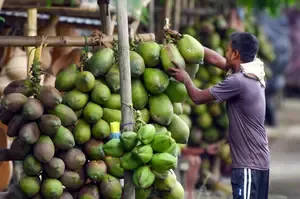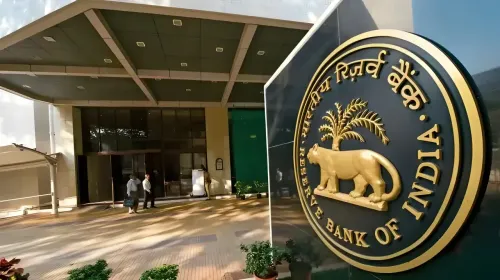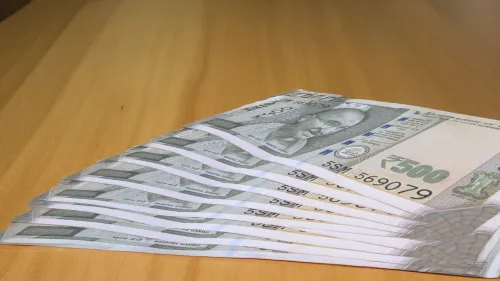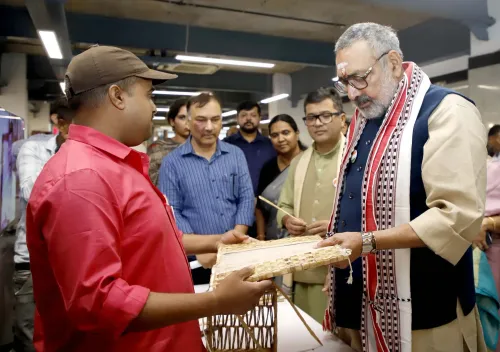Why Have Coconut Prices in Chennai Doubled to Rs 80 per kg?

Synopsis
Key Takeaways
- Coconut prices in Chennai have doubled, now reaching Rs 80 per kg.
- Supply issues stem from Cyclone Gaja and crop diseases.
- Local eateries are adjusting recipes to cope with higher costs.
- Farmers are calling for government intervention to stabilize prices.
- Tender coconuts are also seeing price increases.
Chennai, June 29 (NationPress) Coconut prices have dramatically increased throughout Chennai, with retail rates reaching Rs 80 per kg due to a significant decline in supply coupled with high demand. In the wholesale market, coconuts are trading between Rs 58 and Rs 60 per kg, while semi-wholesale prices are noted to be between Rs 65 and Rs 70 per kg, as stated by S.S. Muthukumar, President of the Koyambedu Semi-Wholesalers Association.
The primary sources of Chennai’s coconut supply include Pollachi, Cuddalore, Puducherry, Thanjavur, and Udumalpet.
However, the situation has been exacerbated following Cyclone Gaja in 2020, which caused extensive damage to coconut plantations across Tamil Nadu's coastline.
As per the state Agriculture Department, the cyclone impacted nearly 45,117 hectares of coconut groves and resulted in damage to around 63 lakh coconut trees across eight districts.
“The government must step in to regulate prices. If not, we might see an additional rise of Rs 5 to 10 in city markets. Chennai requires over three lakh coconuts daily,” stated coconut farmer Saravanakumar.
N. Thangavel, a farmer from Pollachi, explained that the decline in production is not solely due to cyclone damage but also due to the rising prevalence of crop diseases such as leaf blight and stem bleeding, which have become rampant in Tamil Nadu over the past two years.
These rising prices have also impacted small restaurants across Chennai, many of which have begun substituting coconut chutneys with mint chutneys to control costs.
Tender coconuts have also seen a price hike, currently retailing for Rs 50 to 60 each in parts of Chennai.
Muthuraman, a wholesale dealer, mentioned that supply from Pattukkottai and Thanjavur has decreased since Cyclone Gaja, forcing traders to source from Puducherry and Cuddalore, where prices are elevated.
Dealers have noted that tender coconut procurement costs have increased by at least Rs 5 compared to last year, with transportation adding another Rs 3 per coconut. To ensure a consistent supply, sellers often stockpile coconuts in large quantities.
“Tender coconuts are always sought after as they are natural and free from additives,” remarked retailer T. Raji.
Another seller, P.M. Murugan, added, “Despite daily demand fluctuations, sales remain stable because customers are confident in their quality.”








